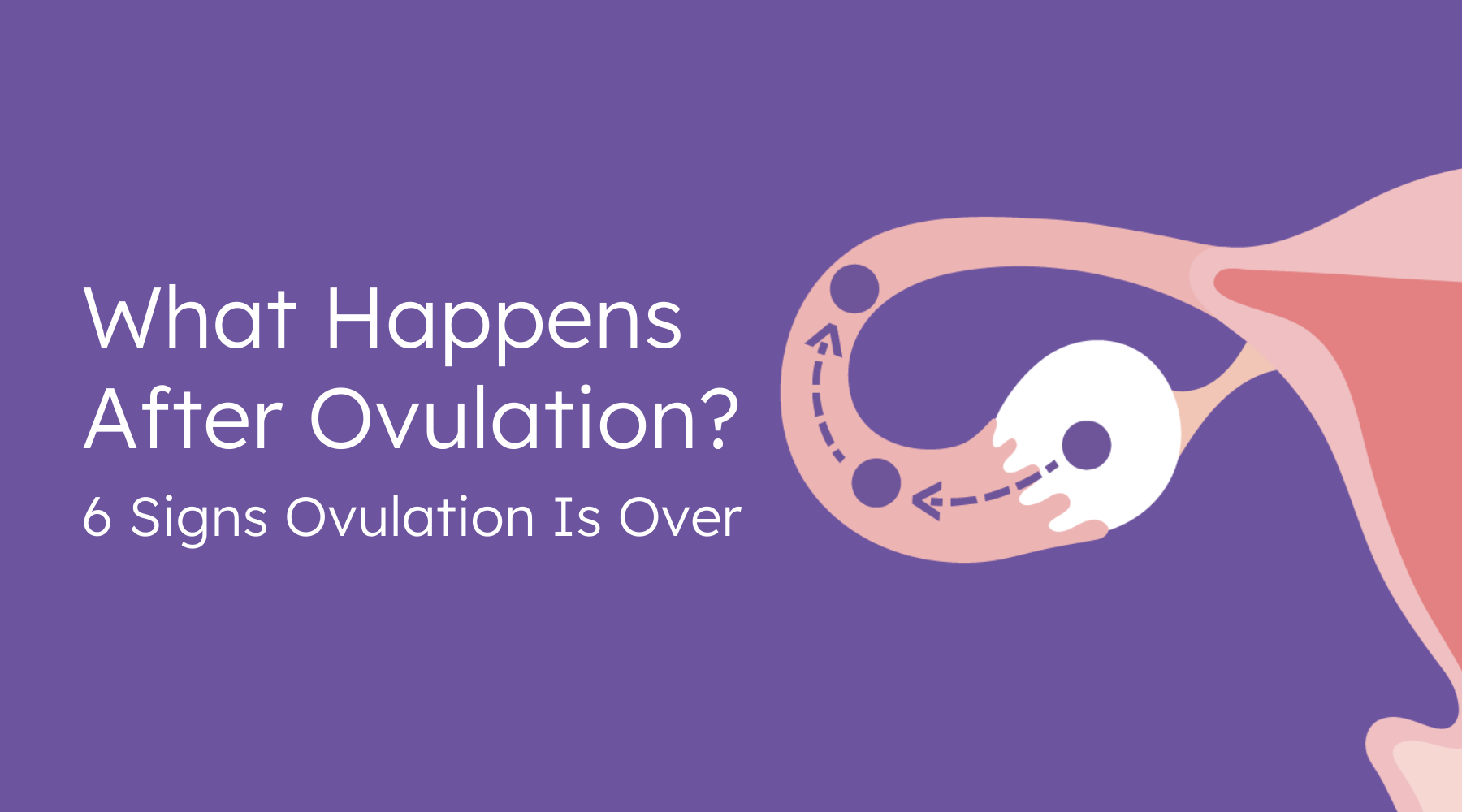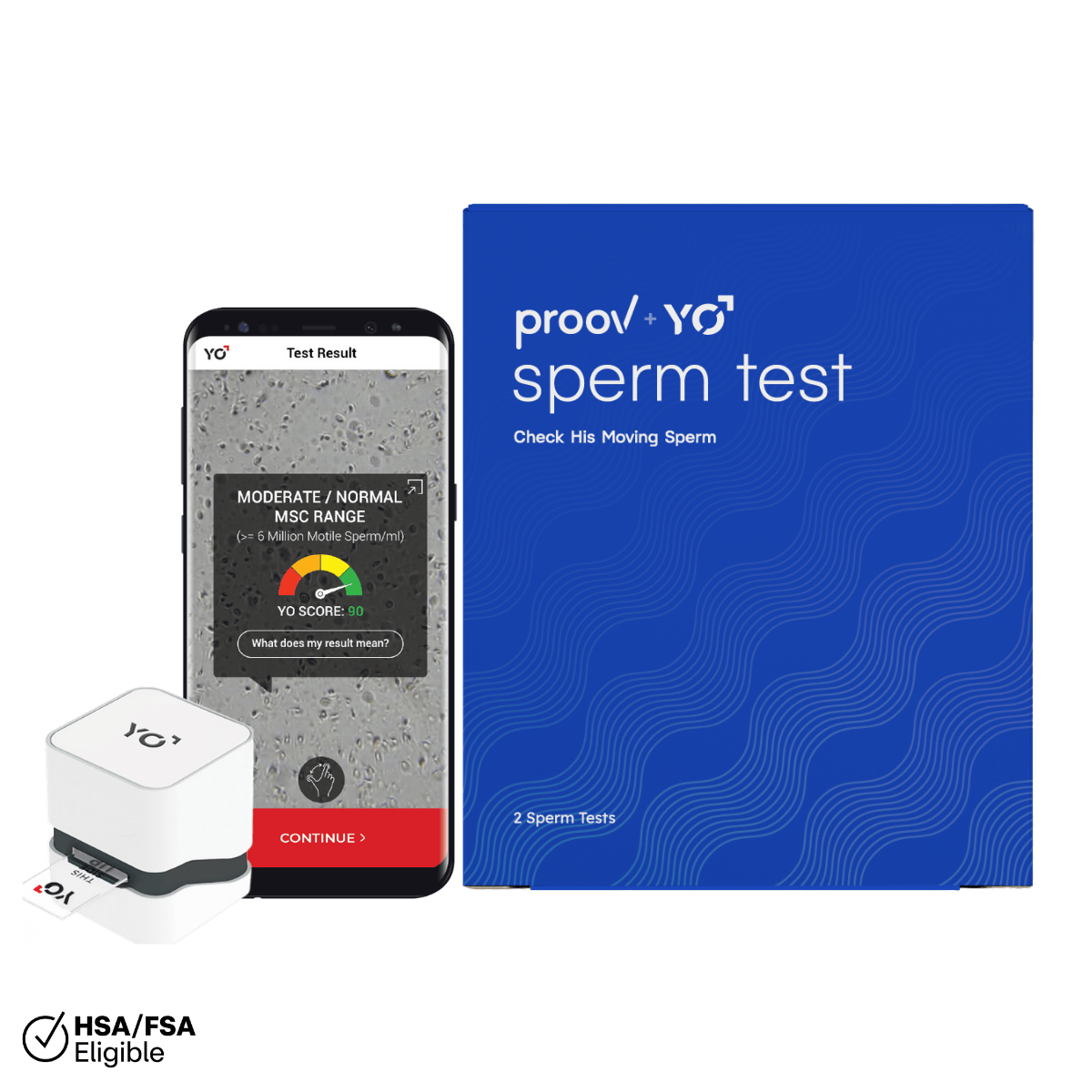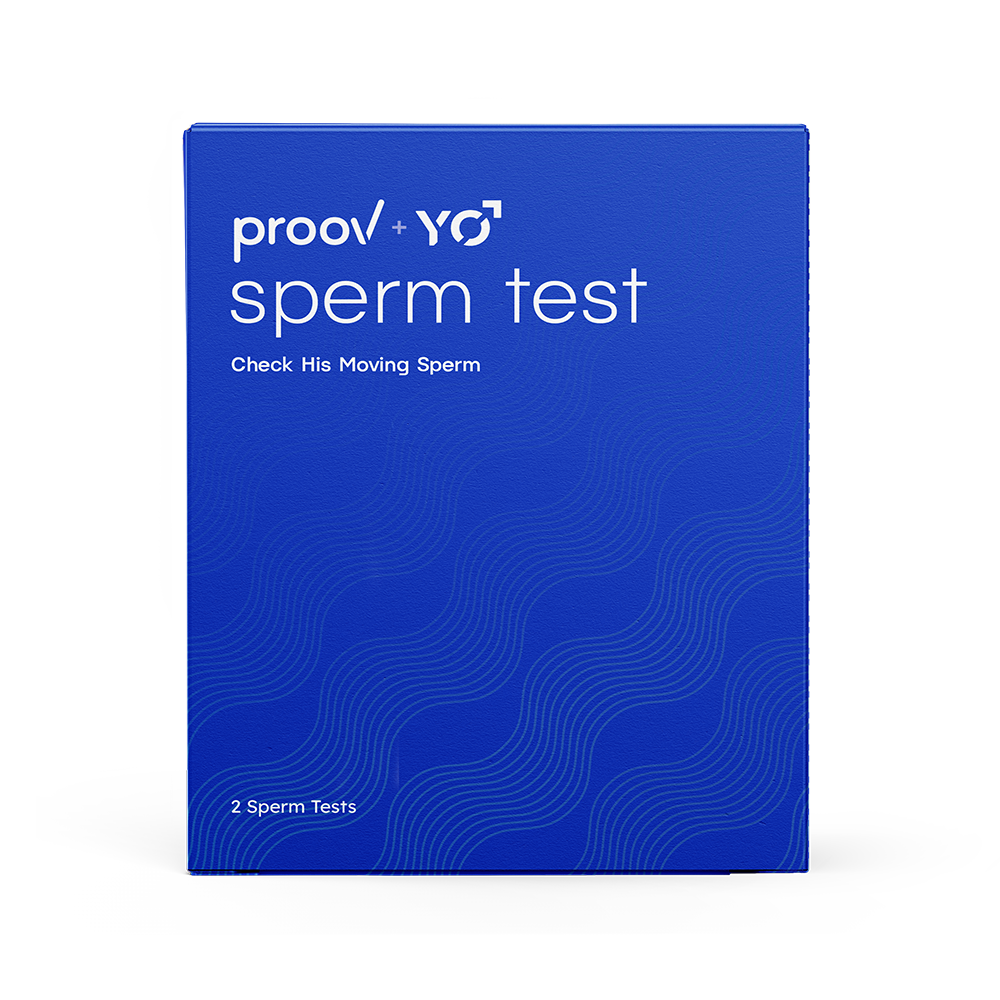Ovulation, or the one time in your menstrual cycle that your ovaries release an egg, is the main event if you’re trying to conceive or tracking your menstrual health! Especially if you’re trying to time intercourse to conceive, it’s important to know when ovulation is so you can, well, “try.”
There are plenty of ways to tell when ovulation is coming–cervical mucus, tracking your LH surge or estrogen rise, or even just estimating using an ovulation calculator or period tracker app. But how do you know when ovulation is over, and the two week wait before you can take a pregnancy test begins?
Fortunately, there are a number of signs, just like there are to predict ovulation. We’ll go over some of our favorites below, so keep on reading!
How Can You Tell Ovulation is Over?
First, to tell that ovulation is over, it’s helpful to know when ovulation might have begun! Ovulation occurs roughly in the middle of your menstrual cycle, at the end of the follicular phase when estrogen is highest.
High estrogen will trigger a surge of luteinizing hormone, that signals to the ovaries that it’s time to release an egg. Ovulation will begin 12-36 hours following the LH surge, and the egg will live 12-24 hours after that. If fertilization by a sperm is going to occur, it will be during that time.
For that reason, it’s useful to know when ovulation is over (and how many days after ovulation you can get pregnant). Since sperm only live 3-5 days in the female reproductive tract, timing intercourse correctly can be an important part of achieving pregnancy. If you stop trying too early, you might miss ovulation entirely. Or if you start trying too late, you may risk the egg dying before sperm have a chance to make it to the fallopian tube.
After the egg is released, the leftover follicle will become the corpus luteum, a special organ that makes progesterone. As this progesterone begins to rise, there are many changes and symptoms that help you determine that the fertile window is closed.
Signs Ovulation is Over

1. Progesterone Rise or Positive PdG Test
Progesterone rising is the most direct symptom of ovulation, and it triggers all the other changes! You can detect progesterone rise via its urine marker, PdG, which will help you determine that ovulation is over. The easiest way to do this is with Proov Confirm PdG tests or Proov Complete Multihormone tests. Especially with Proov Complete, you’ll get to detect your PdG rise as it happens after an LH surge.
This will also help you get a jump start on tracking the implantation window, which is 7-10 days after ovulation. During the implantation window, you’ll want to test for elevated, sustained PdG to make sure you ovulated successfully. (More on that here).
2. Basal Body Temperature (BBT) Shift
Another popular way to confirm ovulation is using Basal Body Temperature. Progesterone rising causes your core body temperature to rise, so by taking your temperature first thing every morning or using a wearable like Tempdrop, you can determine when you ovulated. Look for three temperatures that are higher than the previous six!
3. Cervical Mucus Changes
Estrogen rising during the fertile window will cause your cervical mucus to become stretchy, clear, and slippery. On the flip side, when estrogen begins to decline and progesterone rises after ovulation, your cervical mucus will dry up again. When you notice this dry up, it’s a clue that you’ve probably just ovulated or you’re currently ovulating. A few days after, you can conclude that ovulation probably happened.

4. Libido Decreases
If you’ve been tracking ovulation, you may have noticed that your libido increases around that time. This is due to high estrogen and testosterone, and hopefully helps make “trying” a little easier! After ovulation, it’s typical for libido to decrease again during the luteal phase.
5. Breast Sensitivity or Tenderness
While breast sensitivity or even pain can occur at many times in the cycle, many people find that it happens starting at ovulation. If you notice breast changes or tenderness and track it, you may find that it’s around ovulation, and this will give you a general signal that you may be ovulating.
This is one of the less reliable signs of ovulation, so you’ll want to pair it with a more reliable method of tracking ovulation.
6. Negative Ovulation Predictor Kits or Positive Pregnancy Test
Ovulation Predictor Kits/LH tests will help you find your peak fertility, but they can also be used to help close the fertile window. Since ovulation happens 12-36 hours after the LH surge, if you count two days after your positive LH test, ovulation is likely over or will be soon.
If you keep testing, you’ll likely have 1-2 days of positive LH tests and then they’ll become negative. While LH patterns vary and this doesn’t work for everyone, having negative LH tests after a positive is a good signal that ovulation is over.
Finally, the clearest sign that you ovulated successfully is pregnancy! If you’re missing your period or it’s been 12-16 days on average since you ovulated, it may be time to test for pregnancy. With Proov Check, you can also test for pregnancy up to five days before your missed period.
How Implantation Varies Among Individuals
If you’ve confirmed ovulation, your next important cycle milestone is the implantation window! This happens 7-10 days after ovulation, when a newly fertilized egg has the opportunity to implant in the uterine lining. For successful implantation, you need sustained and elevated progesterone (which you can test with PdG).
Implantation may come with symptoms, but it’s different for everyone. Some people may experience implantation bleeding, breast tenderness, even early pregnancy symptoms. Some won’t have any symptoms at all, and that’s ok too! The most important thing is to remember that everyone’s fertility journey is different.
If you have questions about your unique testing needs, you can chat with a doctor or contact our customer care team!











